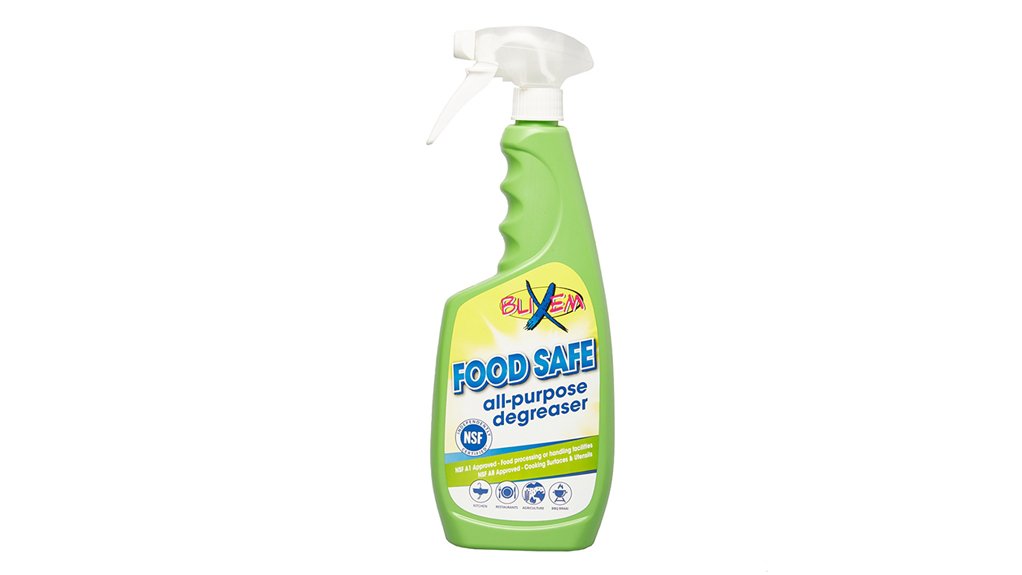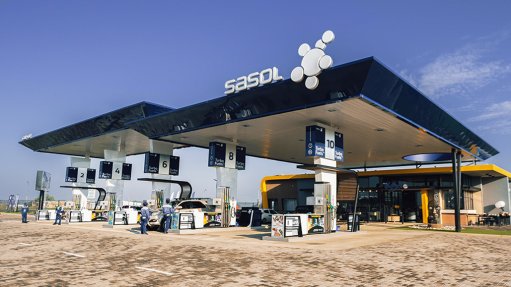Shutdown of oil refineries requires more oil imports



ENOCH QUA-ENOO The closure of oil refineries has resulted in a detrimental position for companies operating in the global market
BLIXEM FOODSAFE DEGREASER The product is composed of surfactant builders enabling easy removal of grease, grime and oil deposit
Local manufacturers and independent blenders of petroluem byproducts have to increase import expenses, owing to the shutdown of oil refineries, says lubricants manufacturer Oilflow director Enoch Qua-Enoo.
“The closure of oil refineries has resulted in a detrimental position for companies operating in the global market, owing to limited options to source base oil. Import rates are constantly increasing, which ignite the increase of commodity costs.”
He adds that the manufacturing of petroleum byproducts has increased in cost, owing to the extraction of oil that is imported from other countries.
However, major oil distributors, with large holding tank capacity and financial muscle, have grasped the opportunity to gain market share on lubricants , says Qua-Enoo.
This enables major manufacturers who are also distributors to buy oil in bulk at low prices, whereas independent blenders have to buy oil on a more regular basis and in small quantities. This means that independent blenders are more susceptible to the shocks in the market. Private businesses, such as integrated energy company Sasol and global mining company Anglo American, are searching for local manufacturers to supply lubricants because of the increase in import rates.
The impact of global oil shortages has been and will continue to be felt through supply chains in the oil industry and ripple into other parts of the energy sector, says Qua-Enoo.
He explains that, while independent blenders are having to navigate between the price waves, major distributors can buy and sell oil at consistent prices.
Independent blenders that source oil from multiple distributors also have to deal with a slow customer buying rate of petroleum byproducts, rather than the sharp increase in the buying rate they have experienced before.
Further, additives, such as antioxidants, detergents, dispersants, rust and corrosion inhibitors, are required to manufacture petroleum byproducts.
These additives are not produced in South Africa, but in countries, such as Belgium and the US, as well as Europe, which export additives to other countries, including South Africa, Qua-Enoo explains.
The additives are expensive and sensitive, as they can easily lose their solubility and have the shortest shelf-life.
Before Covid-19, the shipping of oil and additives took two to three weeks to reach the Port of Durban, in South Africa. Currently, shipping can take up to six to seven weeks, resulting in more oil being bought to supplement the delays.
Qua-Enoo says the KwaZulu-Natal riots; the hacking into rail, port and pipeline company Transnet late last year; and the 400-m-long container ship that blocked the Suez Canal early this year, have contributed to much of the delays in delivering lubricants and other commodities to the Port of Durban.
Consequently, this has resulted in the delay and increase in rates of production of petroleum byproducts.
South Africa needs to control its input costs to control rising cost of inflation by investing in refineries or projects that would help to reduce the cost of food transportation or any type of logistics, for example.
He adds that businesses are moving away from so-called dirty energy, which increases the levels of carbon emissions in the country. The transition from dirty energy to renewable energy includes the use of solar, wind, water and geothermal heat.
Product Range Expansion
Oilflow has been able to stay afloat amid these challenges because of its product range, says Qua-Enoo.
While the company’s petroleum byproducts are focused on the automotive industry, it also offers a range of hardware, agriculture and cleaning products manufactured at its facilities in Jet Park, Gauteng.
Oilflow works with blue-chip companies to custom-manufactured to customer requirements; therefore, the company’s research and development (R&D) strategy has managed to keep it on track in the global market sphere without rendering deficits.
Qua-Enoo adds that, without the R&D strategy, Oilflow would not be able to keep up with the ever evolving global market.
He states that, to survive in this space with no current operating refineries in South Africa, one needs to work with local and international commodity suppliers to ensure security and consistency of supply.
Through innovation and working with various global suppliers and clients, Oilfow is able to launch a new product on a monthly basis. “This is our unique way of servicing customers in different industries such as hardware, agriculture, and the food processing industry.
Comments
Press Office
Announcements
What's On
Subscribe to improve your user experience...
Option 1 (equivalent of R125 a month):
Receive a weekly copy of Creamer Media's Engineering News & Mining Weekly magazine
(print copy for those in South Africa and e-magazine for those outside of South Africa)
Receive daily email newsletters
Access to full search results
Access archive of magazine back copies
Access to Projects in Progress
Access to ONE Research Report of your choice in PDF format
Option 2 (equivalent of R375 a month):
All benefits from Option 1
PLUS
Access to Creamer Media's Research Channel Africa for ALL Research Reports, in PDF format, on various industrial and mining sectors
including Electricity; Water; Energy Transition; Hydrogen; Roads, Rail and Ports; Coal; Gold; Platinum; Battery Metals; etc.
Already a subscriber?
Forgotten your password?
Receive weekly copy of Creamer Media's Engineering News & Mining Weekly magazine (print copy for those in South Africa and e-magazine for those outside of South Africa)
➕
Recieve daily email newsletters
➕
Access to full search results
➕
Access archive of magazine back copies
➕
Access to Projects in Progress
➕
Access to ONE Research Report of your choice in PDF format
RESEARCH CHANNEL AFRICA
R4500 (equivalent of R375 a month)
SUBSCRIBEAll benefits from Option 1
➕
Access to Creamer Media's Research Channel Africa for ALL Research Reports on various industrial and mining sectors, in PDF format, including on:
Electricity
➕
Water
➕
Energy Transition
➕
Hydrogen
➕
Roads, Rail and Ports
➕
Coal
➕
Gold
➕
Platinum
➕
Battery Metals
➕
etc.
Receive all benefits from Option 1 or Option 2 delivered to numerous people at your company
➕
Multiple User names and Passwords for simultaneous log-ins
➕
Intranet integration access to all in your organisation




















